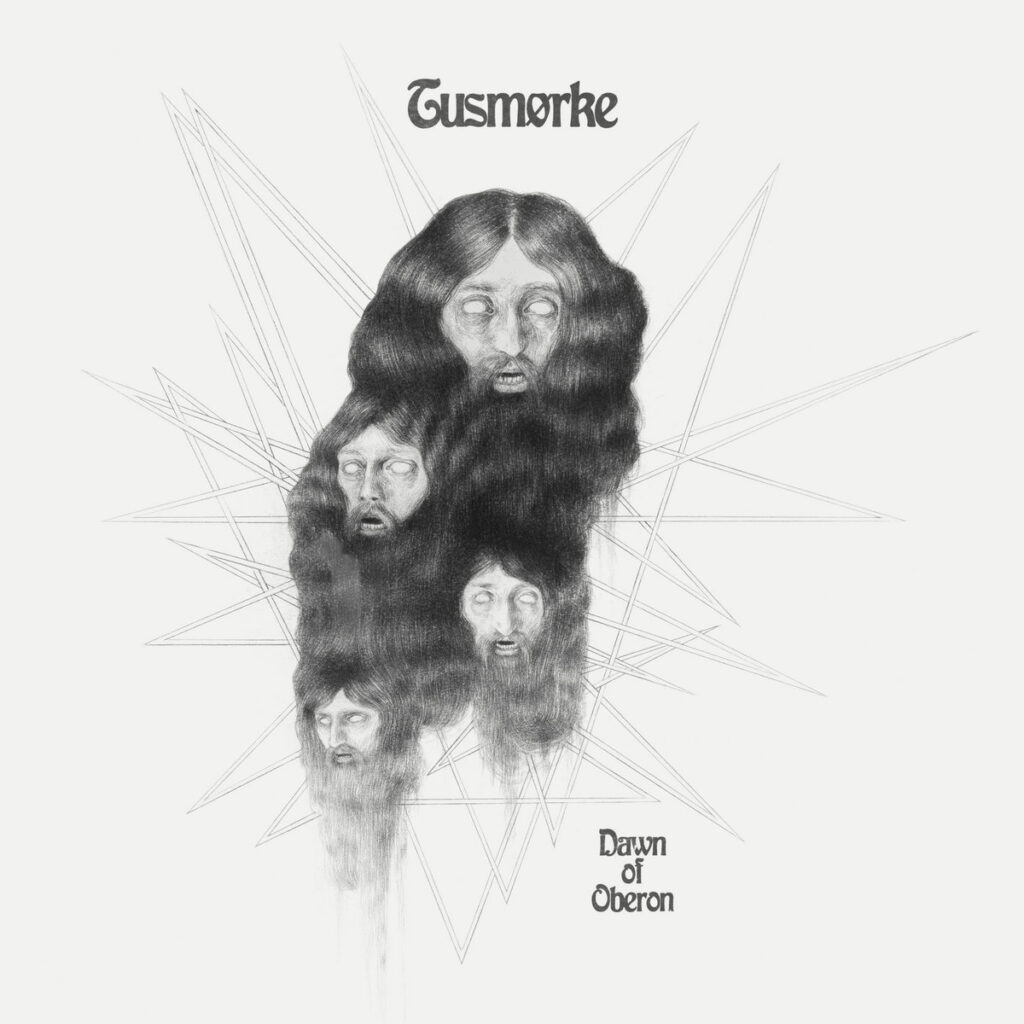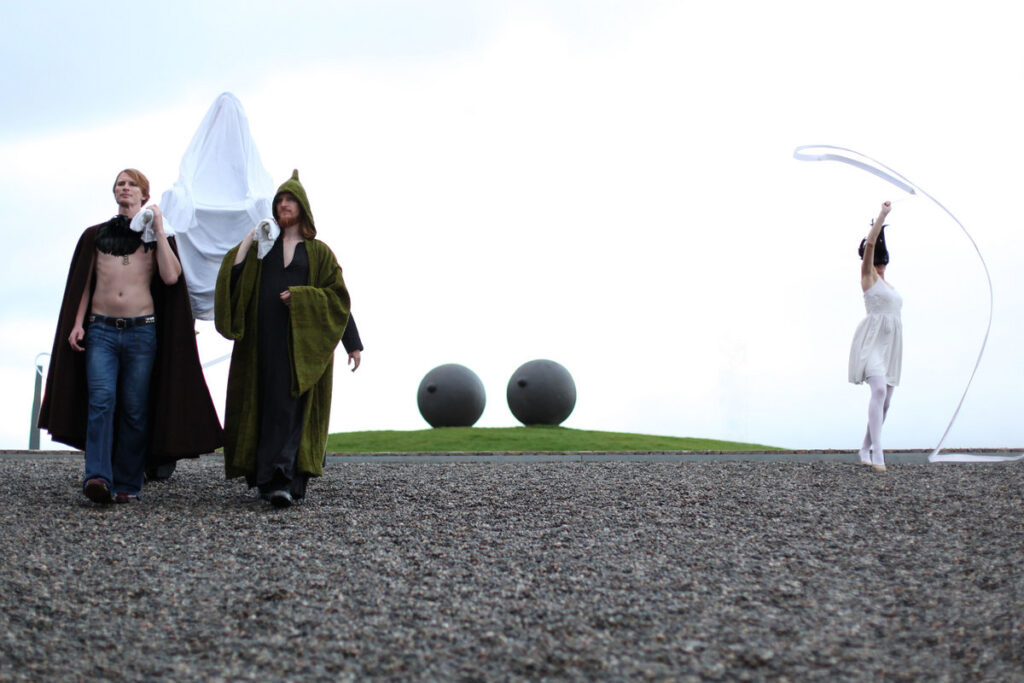Tusmørke‘s twelfth studio album, Dawn of Oberon, contains an imaginative if elusive brand of experimental folk-rock, with a tense and sometimes distressed vibe. Although there are elements of traditional British folk music, there’s an edginess to the songwriting and arrangements that would be entirely alien in a Jethro Tull disc. At times, this straddles the border between folk-rock and the kind of songs you’d expect to be sung at a witches’ brew fest, the haunting supernatural atmosphere enhanced by bursts of what sound like a theremin, hand drums, flute, oboe, ghostly backup vocals, and detours into almost tribal rhythms. While the album embraces an experimental approach, with songs that explore elongated and unconventional structures, the unique male vocals bring a distinctive character that adds a quirky charm, offering something truly different for listeners seeking originality.
The opening self-titled track calls to mind early Gentle Giant at moments, with its eerie vocal passages (including harmonies) set up against extended flute, Hammond organ, keyboard, and guitar-driven instrumental passages. Krizla vocalizes in a more traditional way on the almost 18-minute staggering piece against shimmering organ swells and HlewagastiR’s very expressive drumming, before the song goes off on a tangent with Krizla’s flute and some really unusual time signatures—plus some dazzling electric guitar work.

“Born to Be Mild” shows the same kind of innovation that characterized King Crimson‘s first two albums, but with a freer approach that allows for more expression. The piece features plenty of virtuoso performances, with a subtlety that adds depth. If the title of the song brings Steppenwolf’s classic to mind, you’re not far off, as Tusmørke offers a clever nod to that piece.
The foreboding crawl of the Hammond organ helps establish Tusmørke as one of the darkest and most engrossing progressive acts on the scene today. On Dawn of Oberon, the brooding tones of synthesizer and oscillator, along with Krizla’s distinct and ominously captivating voice, make it one of this Norwegian band’s finest efforts. Continuing with “Midsommernattsdrøm,” an eight-minute synthesized feast of menacing tones and threatening lyrics, the album slowly becomes enveloped in Tusmørke’s sinister instrumental moodiness. With superb percussion work, tracks like “Midsommernattsdrøm” and “People View” are imbued with a blackened texture that never fades. The effective use of flute adds some life to the somberness without detracting from the instrumental intensity. Dawn of Oberon is bolstered by its bleak yet compelling use of heavy tones and the absence of conventional rhythms and light-hearted pulsations. This album represents Tusmørke at their most illustrious, offering a pristine example of how dark progressive folk-rock should sound.
Dawn of Oberon is out via Karisma Records. Stream/purchase the album from Bandcamp.
Dawn of Oberon is bolstered by its bleak yet compelling use of heavy tones and the absence of conventional rhythms and light-hearted pulsations. This album represents Tusmørke at their most illustrious, offering a pristine example of how dark progressive folk-rock should sound.

